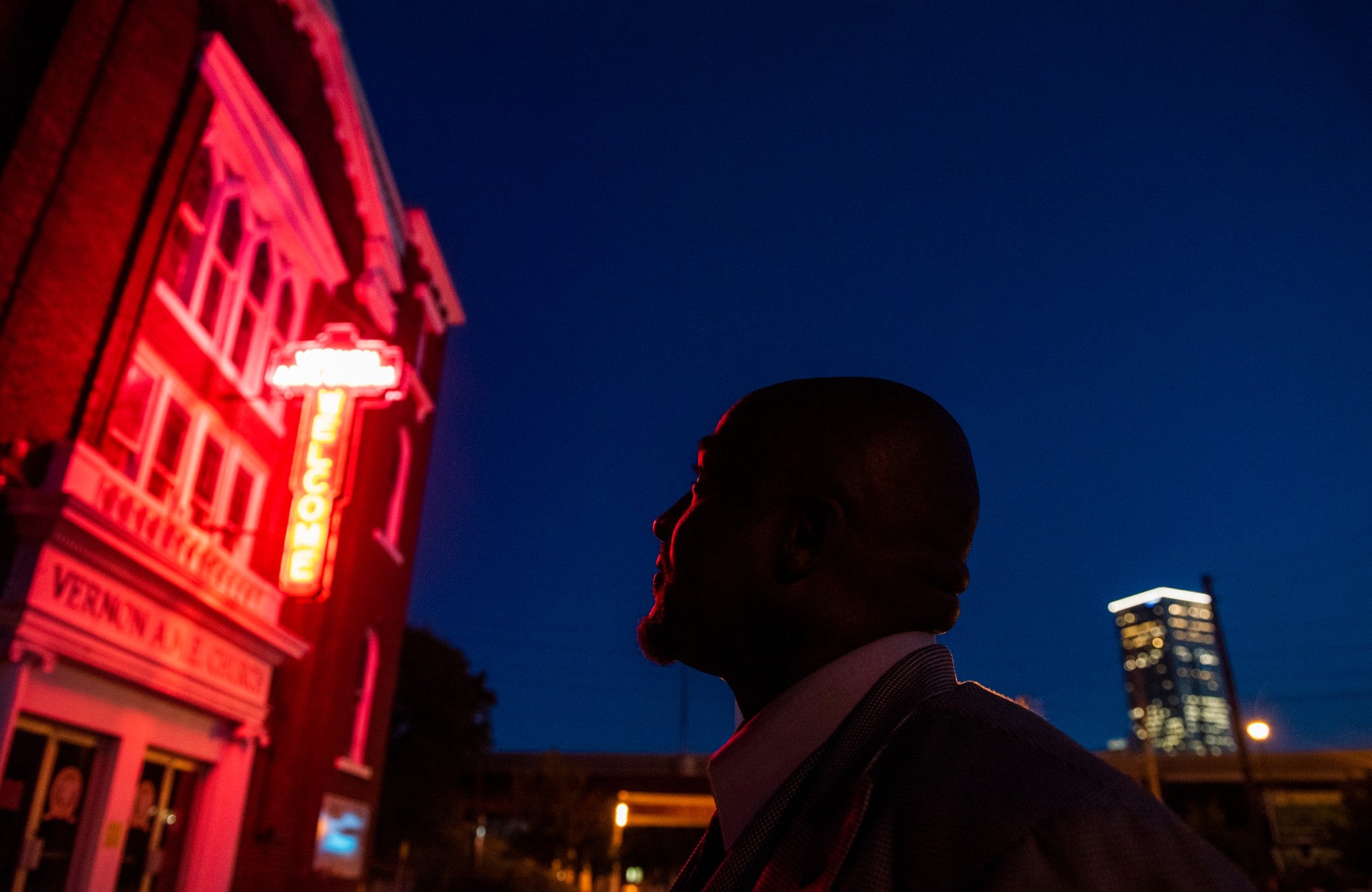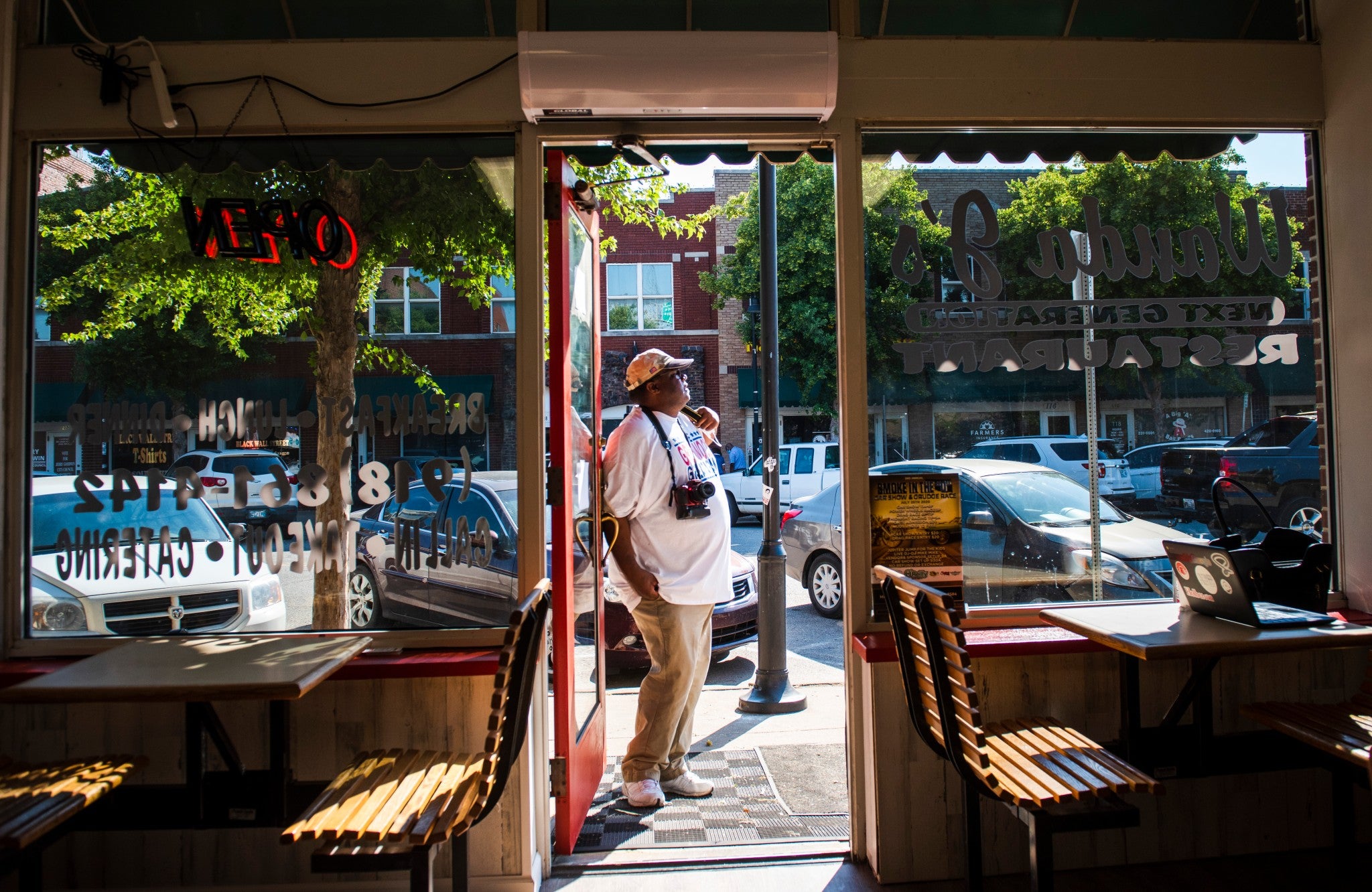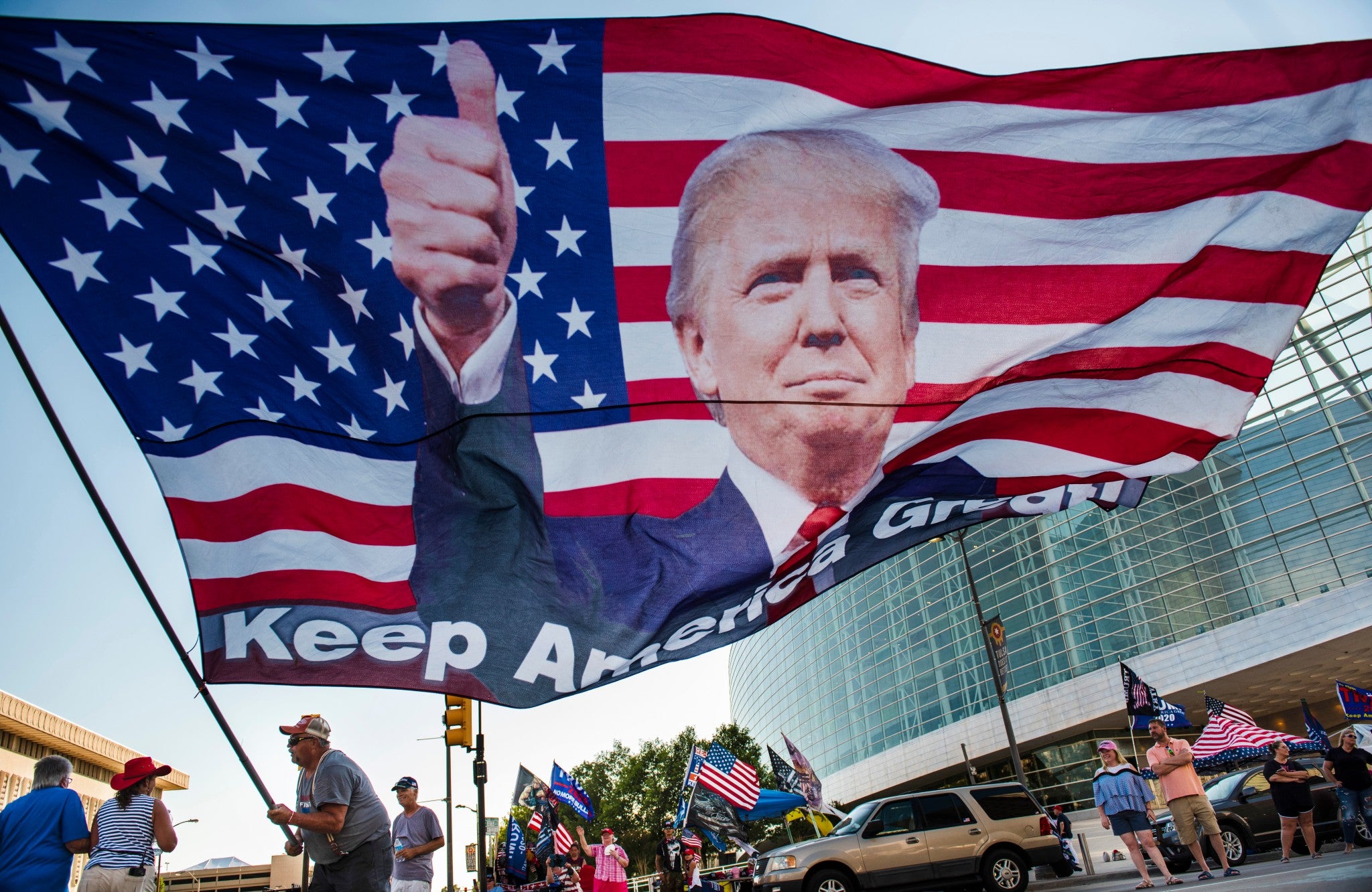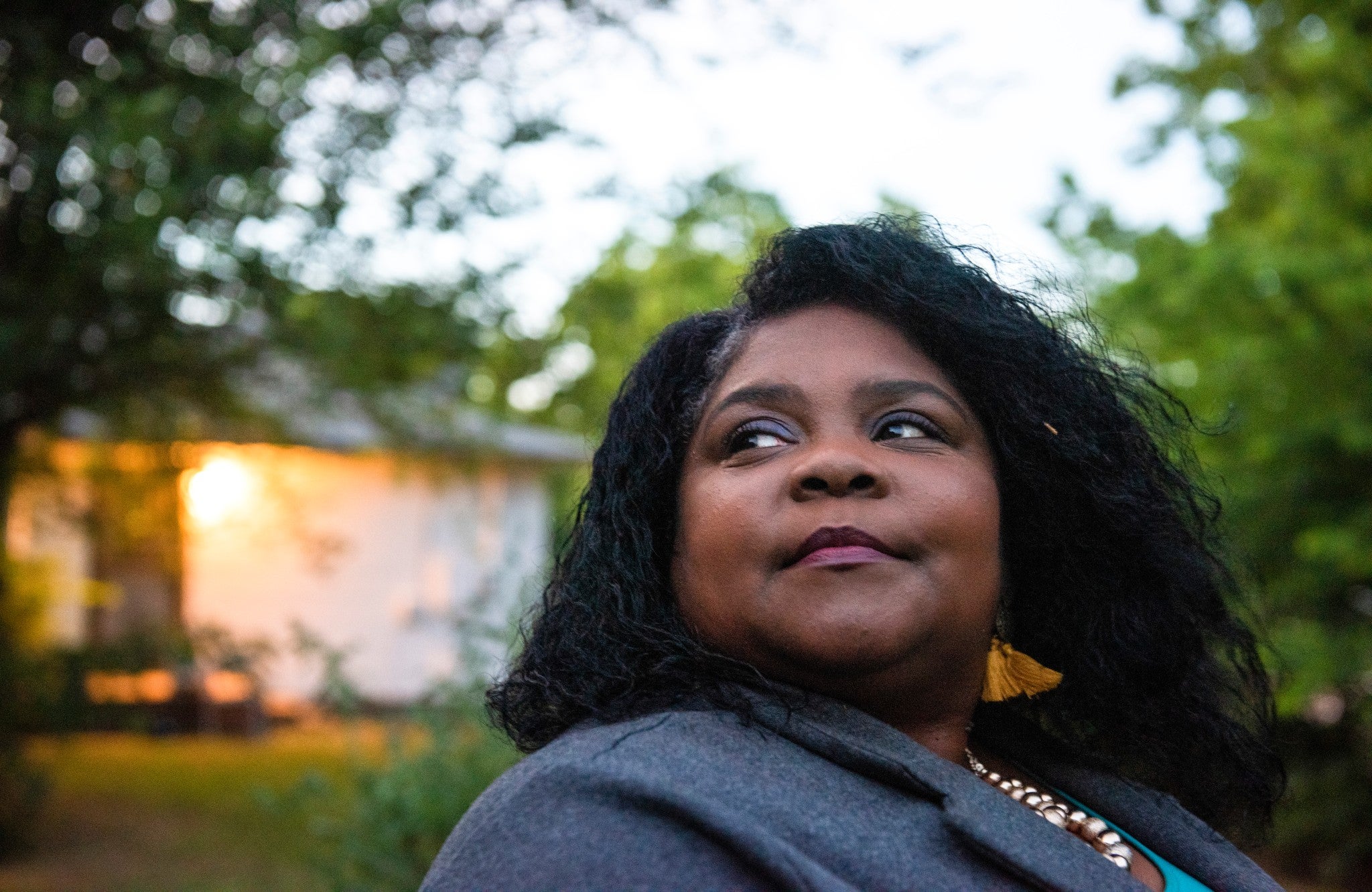Trump rally: Black leaders in Tulsa outraged by planned rally on Juneteenth weekend
Hosting Donald Trump is not essential, says city’s Reverend Turner
Your support helps us to tell the story
From reproductive rights to climate change to Big Tech, The Independent is on the ground when the story is developing. Whether it's investigating the financials of Elon Musk's pro-Trump PAC or producing our latest documentary, 'The A Word', which shines a light on the American women fighting for reproductive rights, we know how important it is to parse out the facts from the messaging.
At such a critical moment in US history, we need reporters on the ground. Your donation allows us to keep sending journalists to speak to both sides of the story.
The Independent is trusted by Americans across the entire political spectrum. And unlike many other quality news outlets, we choose not to lock Americans out of our reporting and analysis with paywalls. We believe quality journalism should be available to everyone, paid for by those who can afford it.
Your support makes all the difference.The historic church that once sheltered black Tulsans escaping one of the deadliest massacres in US history has shut its doors for the Juneteenth holiday weekend, said the Reverend Robert Turner. It will provide only “essential services” such as feeding the hungry and serving people’s spiritual needs.
Hosting Donald Trump, he said, is not essential.
The president arrives in Tulsa on Saturday for his first campaign rally since much of the nation locked down in response to the coronavirus pandemic. The event has drawn outrage from black Tulsans, who say it will stoke tensions — in a city still trying to make amends for the 1921 attack on a historic black community — during a weekend that celebrates freedom for enslaved black people and amid nationwide protests over racism in policing.
When Mr Turner heard that governor Kevin Stitt (R) had offered to give Mr Trump a tour of the historic Greenwood district, where as many as 300 black residents were slaughtered, he was furious.
“We are not doing tours,” he said. “Juneteenth is our community holiday.”

At the behest of Mr Stitt and others, Mr Trump changed the date of the rally, which will be held at the 19,000-seat BOK Centre, from Friday (the Juneteenth holiday) to Saturday. But for Mr Turner and other black leaders, it wasn’t enough.
Civil rights activists say that vestiges of the attack on Greenwood — where white mobs attacked a wealthy, black community nicknamed Black Wall Street — have not been dealt with. Possible mass graves for the victims are still being investigated. Calls for reparations for descendants have gone unheeded. And the push to put Greenwood on the National Register of Historic Places has dragged on for years.
“I commend him for listening to his African American friends,” Mr Turner said of Mr Trump’s decision to change the date of the rally. “I encourage him to listen to all Americans, especially those protesting in the street, demanding police accountability. I encourage him to listen to his own generals and change the names of military bases named in honour of Confederate generals who committed treason. I encourage him to listen to those of us calling for atonement of America’s first sin, slavery. I want him to support the bill for reparations. We are still reeling. It’s still real for us. We still have not received justice for it.”
African American leaders in Tulsa have planned two days of socially distanced outdoor festivities for Juneteenth, Mr Turner said, and many plan to avoid Mr Trump’s rally and protests outside the arena. Historian J Kavin Ross, a photojournalist who has documented stories of people who survived the race massacre, said the rally could further divide the city along racial lines.

“We know he is coming to divide us,” Mr Ross said. “I think Donald Trump’s visits to hot racial hotbeds around the country are obviously a direct and deliberate attempt to rally up his base. That is not needed at this time when we are dealing with unemployment. It’s the wrong time because of Juneteenth. It’s the wrong time because it’s the 99th observation of the Tulsa Massacre and it’s the wrong time because we are in the midst of Covid.”
Oklahoma has recorded more than 9,354 confirmed cases of the novel coronavirus and 366 deaths. Tulsa County has recorded 1,945 confirmed coronavirus cases, including a record-high 96 cases on Wednesday. There have been 65 deaths.
The state has not lifted its prohibition on mass gatherings, and Health Department Director Bruce Dart this week recommended that Mr Trump’s rally be postponed until case numbers decline.
Tulsa Mayor G T Bynum (R) said on Wednesday that he would welcome Mr Trump at the airport but would not attend his rally.
Tulsa residents and business owners, concerned about the potential for a large outbreak of coronavirus at the rally, have sued the venue manager, attempting to block the event unless it is held in accordance with social distancing guidelines from the Centres for Disease Control and Prevention. A Tulsa County judge on Tuesday denied the request for a temporary injunction, but the decision was appealed to the Oklahoma Supreme Court, which heard arguments in the case on Thursday and was expected to rule Friday.
“We are in the midst of Covid-19 and our cases are spiking. We need to be mindful of that,” said state representative Regina Goodwin (D), who represents Greenwood. “That should be on [the] mind of every black person in Tulsa. We are dealing with the virus of racism and virus of Covid-19.”
In the wake of the death of George Floyd, which set off worldwide demonstrations after video of him losing consciousness under the knee of a Minneapolis police officer went viral, Tulsa has erupted with its own protests against police brutality.
On 31 May, hundreds of Black Lives Matter protesters poured into Tulsa’s streets, marching from Greenwood to the I-244 Expressway, where they blocked traffic. Mr Ross, who attended the protest, said drivers tried to inch through the crowd. But one red Dodge truck pulling a horse trailer suddenly tried to barrel through.
“When the driver met opposition, he put a gun on the dashboard and kept pushing his way through the crowd,” Mr Ross said. “It was a scene out of a horror film.”
Several cellphone videos captured the incident, showing two protesters clinging to the hood as the truck pushed forward. Some demonstrators jumped off the highway to avoid the truck. Dozens were injured, according to police reports.
Among them was activist Kristi Williams’s son, who she said jumped off the highway when the truck barrelled through the crowd.
“When he came home, he had one shoe, scratches on his leg and his clothes were twisted,” Ms Williams said. “He saw the man fall off the highway.”
Ms Williams said Mr Trump’s rally is a diversion from activists’ work in Tulsa towards justice. “Trump is here for a photo op,” Ms Williams said. “But we are way beyond symbolism at this point. They asked me what can Trump do for Greenwood. I said he could help put Greenwood on the National Historic Registry. And push for reparations for descendants.”
The protests in Tulsa were fuelled by local incidents, as well. Under public pressure, the Oklahoma City Police Department released a video this week showing the 20 May 2019 arrest of Derrick Scott, a black man who pleaded with an officer kneeling on him.

“I can’t breathe,” Mr Scott said as police held him handcuffed to the ground. One officer replied: “I don’t care.”
Mr Scott died minutes later while in police custody.
Mr Scott’s death came four years after Terence Crutcher, an unarmed black man on his way to church, was fatally shot by a Tulsa police officer after his truck stalled in the middle of a road. As a police helicopter hovered above the scene, an officer in the helicopter could be heard saying: “That looks like a bad guy,” moments before Crutcher was shot.
The 16 September 2016 shooting of Mr Crutcher was captured on video and drew national attention and protests. Tulsa’s district attorney filed a “heat-of-passion” manslaughter charge against the officer who shot him, Betty Shelby. Protesters gathered at the courthouse and shouted: “No justice. No peace. No racist police”. Ms Shelby was acquitted in the shooting and later hired to train police.
Tiffany Crutcher, Terence’s twin sister, said that Tulsa has long avoided difficult discussions about race. The victims of the massacre, she said, “never received justice. They were never properly memorialised. We have suffered residual effects of this for close to 100 years. Our ancestors are crying out for justice, and we feel it is our duty to see to it” that they receive “the proper burials they deserve”.

On the eve of the 99th anniversary of the Tulsa Race Massacre last month, Human Rights Watch released a report calling for reparations for survivors and descendants of the attack. The organisation said that the massacre still affects generations of black people in North Tulsa, where life expectancy is much lower than the life expectancy in South Tulsa, which is predominantly white. Northern Tulsa, a “food desert”, also has high unemployment and poverty, which Human Rights Watch linked to the effects of the 1921 Race Massacre.
“Ongoing racial segregation, discriminatory policies, and structural racism have left black Tulsans, particularly those living in North Tulsa, with a lower quality of life and fewer opportunities,” the report said.
Human Rights Watch argued that governments are obligated under international laws to provide remedies for violations of human rights.
“A movement is growing to urge state and local officials to do what should have been done a long time ago,” the report said, “act to repair the harm, including by providing reparations to the survivors and their descendants, and those feeling the impacts today.”
At Tulsa City Hall on Wednesday, Reverend Turner shouted into a bullhorn, demanding justice for black people in Tulsa, reminding the city of the massacre and what happened to people just a few generations removed from slavery.
“They asked for nothing from this city, state or country,” Mr Turner shouts. “These were former veterans from World War who came and wanted to live out the American Dream. Tulsa, how did you repay them? You went down to Greenwood and looted and killed innocent people and dumped their bodies into mass graves. No one in the mob was ever charged.”
Mr Turner’s voice rises. He turns and points his bullhorn towards the gleaming city hall.
“What kind of civilised society burns churches?” Mr Turner shouts. “The blood of those you killed. The [people] you killed in cold blood [in] broad daylight. Their blood is on your hands.”
The Washington Post

Join our commenting forum
Join thought-provoking conversations, follow other Independent readers and see their replies
Comments